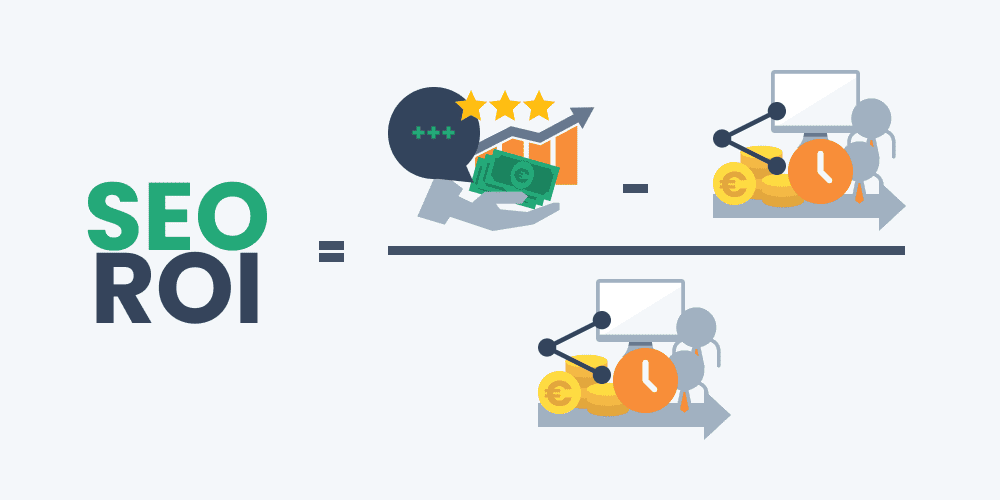Maximizing Your SEO ROI: Tips and Tricks for Success
As a SEO practitioner, I have come to understand the significance of SEO ROI (Return on Investment) in today’s digital landscape.
In this article, I will delve into the various aspects of SEO ROI and provide insights on how to maximize its potential for your business or website.
Key Takeaways
- Understanding the importance of SEO ROI is crucial for any business looking to succeed online.
- Setting realistic goals for your SEO strategy is key to achieving measurable results.
- Conducting keyword research is essential for optimizing your content and improving your website’s visibility.
- Creating high-quality content that resonates with your audience is a powerful way to drive traffic and engagement.
- Building backlinks and optimizing your website’s technical SEO are important factors in boosting your website’s authority and performance.
Understanding the Importance of SEO ROI
SEO ROI refers to the measurement of the return you receive from your investment in search engine optimization efforts. It is crucial because it allows you to assess whether your SEO strategies are effective in driving organic traffic, increasing conversions, and ultimately generating revenue.
In an increasingly competitive online marketplace, having a strong online presence is essential for businesses to thrive. By focusing on maximizing your SEO ROI, you can ensure that every effort put into optimizing your website and content yields tangible results.
Setting Realistic Goals for Your SEO Strategy
Before diving into any SEO strategy, it is important to identify your objectives clearly. Are you looking to increase brand visibility? Drive more traffic? Generate leads? By understanding what you want to achieve through your efforts, you can tailor your strategy accordingly.
Once you have identified your objectives, it is crucial to establish measurable goals that align with those objectives. For example, if one of your objectives is increasing organic traffic by 20%, set a goal specifically targeting that metric so that progress can be tracked effectively.
Conducting Keyword Research to Optimize Your Content
| Search Volume | The number of times a keyword is searched for in a given period of time. |
| Keyword Difficulty | A metric that estimates how difficult it is to rank for a particular keyword. |
| Click-Through Rate (CTR) | The percentage of clicks a search result receives, based on the number of impressions it gets. |
| Cost-Per-Click (CPC) | The amount of money an advertiser pays for each click on their ad. |
| Keyword Relevance | How closely a keyword matches the content on a webpage. |
| Long-Tail Keywords | Keywords that are more specific and less commonly searched for, but often have higher conversion rates. |
Keyword research forms the foundation of any successful content optimization strategy as it helps identify relevant keywords and phrases that users are searching for in search engines like Google or Bing.
There are several tools available that can assist with keyword research such as Google Keyword Planner or SEMrush. These tools provide valuable insights into search volume, competition, and related keywords that can help you optimize your content effectively.
When conducting keyword research, it is important to consider the relevance of the keywords to your target audience and their search intent. Additionally, focusing on long-tail keywords can often yield better results as they are more specific and have less competition.
Creating High-Quality Content that Resonates with Your Audience
To create content that resonates with your audience, it is crucial to understand who they are, what their needs and pain points are, and how your product or service can address those needs. Conducting market research or creating buyer personas can be helpful in gaining insights into your target audience.
User intent refers to the reason behind a user’s search query. By understanding user intent for different keywords or topics, you can create content that directly addresses those queries and provides value to users.
When creating content for SEO purposes, it is important to focus on quality rather than quantity. Ensure that your content is well-researched, informative, engaging, and optimized for relevant keywords without compromising readability.
Building Backlinks to Boost Your Website’s Authority
Backlinks are links from other websites pointing back to yours. They play a crucial role in determining the authority of a website in the eyes of search engines like Google.
Building high-quality backlinks involves reaching out to relevant websites within your industry or niche and securing links from them. This can be achieved through guest posting on authoritative blogs or collaborating with influencers who have a strong online presence.
When building backlinks, it is important to focus on quality rather than quantity. Seek out reputable websites with high domain authority and ensure that the anchor text used in the backlinks is relevant to your content.
Optimizing Your Website’s Technical SEO for Better Performance
Technical SEO refers to the optimization of your website’s technical aspects to improve its visibility and performance in search engine rankings. It involves optimizing factors such as site speed, mobile-friendliness, URL structure, and crawlability.
To optimize your website’s technical SEO, ensure that your website is fast-loading, responsive across different devices, has a clear URL structure, utilizes proper header tags, and has an XML sitemap in place. Regularly monitoring and fixing any technical issues that may arise is also crucial.
Leveraging Social Media to Drive Traffic and Engagement
While social media signals do not directly impact search engine rankings, they play a significant role in driving traffic to your website. By leveraging social media platforms effectively, you can increase brand visibility and engagement which indirectly contributes to better organic rankings.
When using social media for SEO purposes, it is important to create engaging content that encourages sharing and interaction. Utilize relevant hashtags on platforms like Twitter or Instagram to increase discoverability. Additionally, engage with your audience by responding promptly to comments or messages.
Tracking and Analyzing Your SEO Metrics for Continuous Improvement
Tracking key metrics allows you to measure the effectiveness of your SEO efforts accurately. Some essential metrics include organic traffic growth rate, keyword rankings, conversion rates from organic traffic sources.
There are several tools available such as Google Analytics or Moz that can help track various aspects of your website’s performance including organic traffic sources or keyword rankings.
Regularly analyzing these metrics will provide insights into what is working and what needs improvement. By identifying trends or patterns, you can make data-driven decisions to optimize your SEO strategy further.
Staying Up-to-Date with the Latest SEO Trends and Best Practices
SEO is an ever-evolving field, with search engine algorithms constantly changing. Staying up-to-date with the latest trends and best practices ensures that your SEO efforts remain effective in a dynamic digital landscape.
To stay current with SEO trends, it is essential to follow reputable industry blogs, attend webinars or conferences, and engage in online communities where professionals share insights and updates.
Investing in Professional SEO Services for Maximum ROI
While it is possible to handle SEO efforts in-house, investing in professional services can provide several benefits. Professionals have expertise in optimizing websites effectively, staying updated on industry changes, and implementing strategies that yield maximum RO
When selecting an SEO service provider, consider their track record of success, client testimonials or case studies. Additionally, ensure that they align with your business goals and have a clear understanding of your target audience.
How to measure your SEO ROI then?
Here is a simple SEO ROI calculator that DFYweb has prepared for you. Simply input your data to calculate!
Taking Action to Maximize Your SEO ROI
In this article, we explored various aspects of maximizing your website’s ROI through effective search engine optimization strategies. From setting realistic goals to creating high-quality content and leveraging social media platforms – each step contributes towards achieving better organic rankings.
Actionable Steps for Maximizing SEO ROI
To maximize your website’s ROI through SEO efforts:
1. Set clear objectives aligned with business goals.
2. Conduct thorough keyword research.
3. Create high-quality content tailored to user intent.
4. Build authoritative backlinks from relevant websites.
5.Optimize technical aspects of your website for better performance.
6. Leverage social media platforms to drive traffic and engagement.
7. Track and analyze SEO metrics regularly for continuous improvement.
8. Stay up-to-date with the latest SEO trends and best practices.
9. Consider investing in professional SEO services if needed.
By implementing these steps, you can take action towards maximizing your SEO ROI and ensuring long-term success in the digital landscape.
FAQs
What is SEO?
SEO stands for Search Engine Optimization. It is the process of optimizing your website to rank higher in search engine results pages (SERPs) for specific keywords and phrases.
Why is SEO important?
SEO is important because it helps your website rank higher in search engine results pages, which can lead to increased traffic, leads, and sales. It also helps to establish your website as an authority in your industry.
What is SEO ROI?
SEO ROI stands for Search Engine Optimization Return on Investment. It is a measure of the return on investment for your SEO efforts. It takes into account the cost of your SEO efforts and the revenue generated from those efforts.
How can I maximize my SEO ROI?
To maximize your SEO ROI, you should focus on creating high-quality content that is optimized for your target keywords and phrases. You should also focus on building high-quality backlinks to your website and optimizing your website’s technical SEO.
What are some tips for successful SEO?
Some tips for successful SEO include conducting keyword research, creating high-quality content, optimizing your website’s technical SEO, building high-quality backlinks, and tracking your results with analytics tools.
How long does it take to see results from SEO?
It can take several months to see results from SEO efforts. This is because it takes time for search engines to crawl and index your website, and for your website to build authority and rank higher in search engine results pages.



